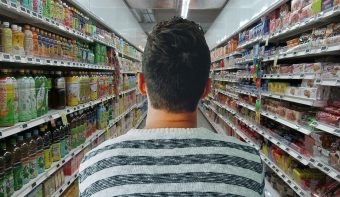The world’s leading suppliers of groceries, personal care products, household goods and consumer electronics are racing to adapt to sustainably-minded consumers.

That’s the verdict from environmental non-profit CDP, which has published a new report showing the ‘Fast Moving Consumer Goods’ FMCG sector is having to change its business models in the face of a rise in veganism and increasing awareness regarding the impact of plastic packaging.
It acknowledges Danone and Nestlé are leading the ‘Food and Beverage’ sub-sector and notes Unilever and L’Oréal are taking the lead in ‘Household and Personal Care’.
However, it stresses some businesses are falling behind their competitors, noting Kraft Heinz and Estée Lauder as examples, and says these businesses have a key role to play in curbing more a third of global greenhouse gas emissions.
It shows five out of the seven ‘Food and Beverage’ companies that originally offered dairy or meat-based products are innovating with new vegan alternatives and highlights Unilever as one of four companies to have already developed animal-free personal care product ranges.
Similarly, ‘Household and Personal Care’ companies are creating more plant-based, natural options – six out of seven companies including L’Oréal are actively innovating to replace fossil fuels with low carbon ingredients.
Around 60% of companies are investing in plastic packaging alternatives and recycling infrastructure to curb waste but the same percentage of the top ten revenue-generating brands for each business have failed to deliver low carbon innovations in the last decade.
The report also warns the sector is also highly exposed to climate change risks, such as relying on unsustainable palm oil, which have the potential to disrupt agricultural supply chains and cause price volatility.
Carole Ferguson, Head of Investor Research at CDP, said: “As consumer facing brands, at risk not just from climate change but water scarcity and deforestation too, these companies have a unique role to play in driving forward the sustainable economic transition.
“Ongoing activism around plastics and packaging is just the tip of the iceberg and we expect to see more environmental issues come to the fore as consumers start to question what goes into the products they buy, use and dispose of.”
Source: Energy Live News



